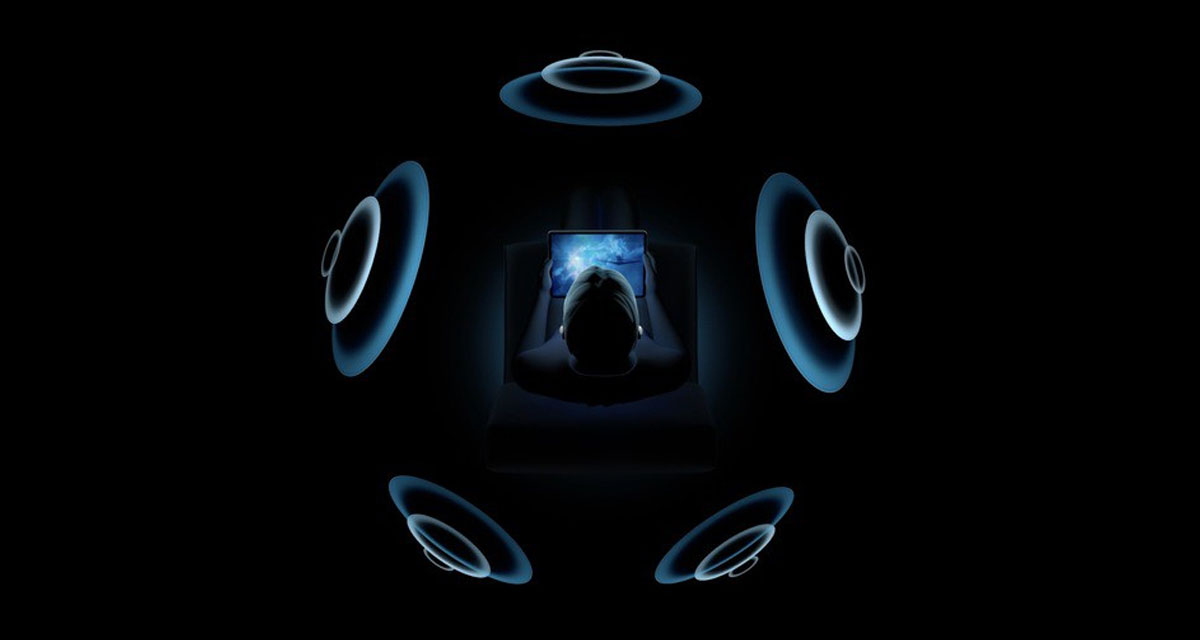Apple has released a new firmware 3A283 update for AirPods and AirPods Pro, adding two new features that were announced during the WWDC event in June. Both features will require iOS 14, with spatial audio (AirPods Pro only) and automatic device switching now waiting for the update to roll out to users within the next few weeks.
The new firmware update does mean that everyone running the beta versions of iOS 14 can now take the new features for a spin, though.

The first, spatial audio, is a pretty big deal and will allow users to enjoy audio that puts specific audio items in 3D space based on their location on-screen. Think of it as Dolby Atmos, but with a pair of earbuds instead of 43 speakers attached to the side of your head.
Spatial audio with dynamic head tracking brings the movie theater experience right to your AirPods Pro. By applying directional audio filters and subtly adjusting the frequencies each ear receives, spatial audio can place sounds virtually anywhere in space, creating an immersive surround sound experience. Using the gyroscope and accelerometer in your AirPods Pro and your iPhone, spatial audio tracks the motion of your head as well as your device, compares the motion data, and then remaps the sound field so that it stays anchored to your device even as your head moves.
While that feature is only available to those using AirPods Pro, AirPods users will also be able to enjoy the automatic device switching that is also part of this firmware update.
Surprise – Apple just dropped update for AirPods Pro with Spatial Audio and automatic device switching. Both features work really well! pic.twitter.com/7p4uQcVM2k
— Daniel Marcinkowski (@dmarcinkowski_) September 14, 2020
With that enabled, users will have their AirPods automatically switch between iPhones, iPads, Macs, Apple Watches, and even iPod touches as and when required. Users will not need to switch outputs manually. At least, that’s the plan. We’ll let you know how well that works once we’ve taken it for a spin ourselves.
You may also like to check out:
- iOS 14 GM Download Release Date: Here’s When To Expect Its Availability
- Download: iOS 14 Beta 8 IPSW Links, OTA Profile File And iPadOS 14 Beta 8 Released
- Download iOS 14 Beta 1 IPSW Links And Install On iPhone 11, Pro, XS Max, X, XR, 8, 7, Plus, 6s, iPad, iPod [Tutorial]
- Download: iOS 13.7 Final IPSW Links, OTA Profile Update Released With Automatic COVID-19 Notifications
- Jailbreak iOS 13.7 Using Checkra1n, Here’s How-To [Tutorial]
- Downgrade iOS 13.7 To iOS 13.6.1, Here’s How [Tutorial]
- Apple Watch ECG App Hack: Enable Outside US In Unsupported Country On Series 5 & 4 Without Jailbreak
You can follow us on Twitter, or Instagram, and even like our Facebook page to keep yourself updated on all the latest from Microsoft, Google, Apple, and the Web.

